Amela Rasi: Art as a Meditation on Human Interaction
Explore the ever-changing nature of identity through the abstract art of Amela Rasi, where human interactions shape each brushstroke.
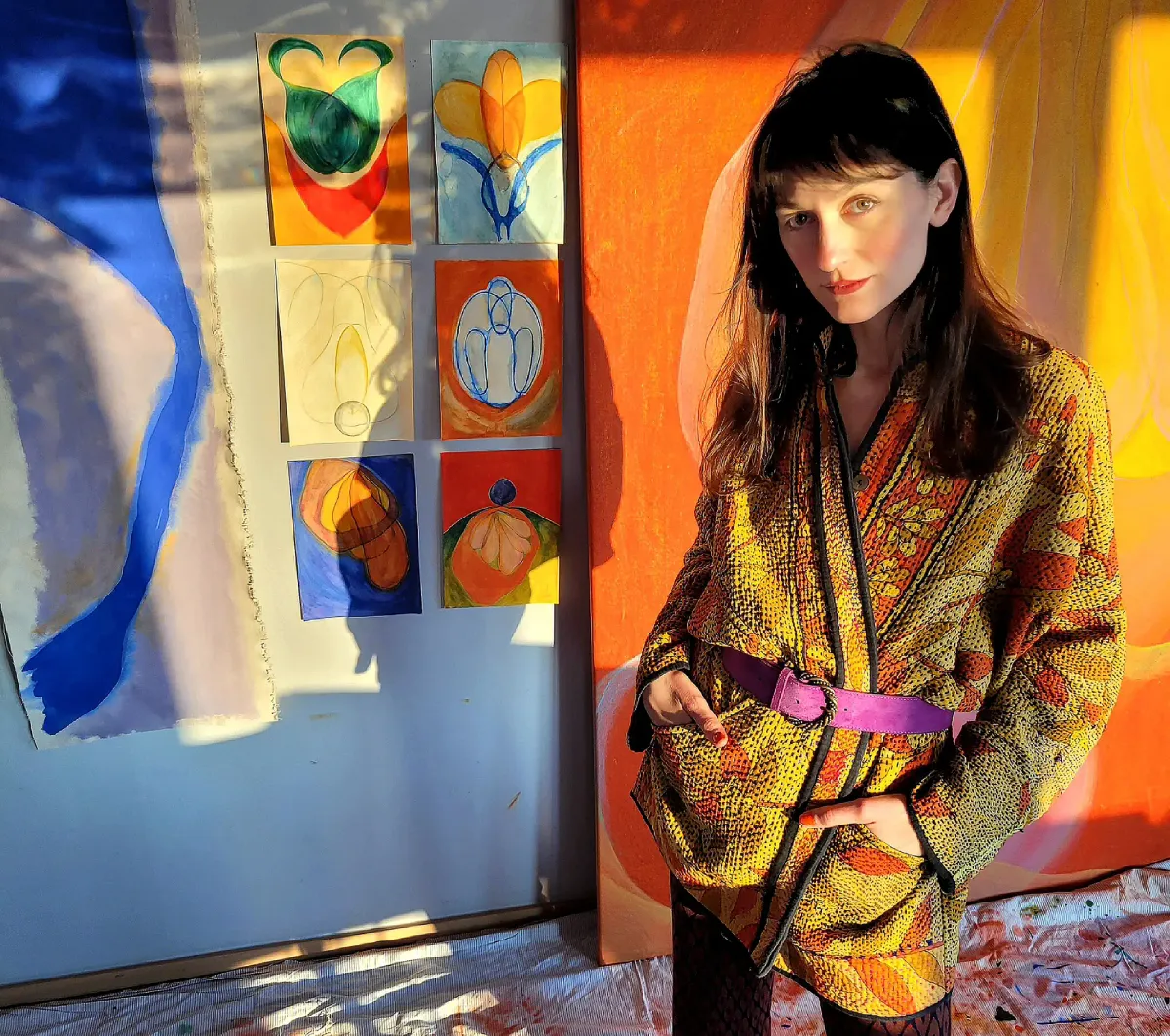
From Landscapes to Abstracts: The Evolution of Amela Rasi’s Art
Amela Rasi was born in 1986 in Saarbrücken, Germany, to parents who had migrated from the former Yugoslavia.
Amela Rasi work can be seen as a meditation on the nature of identity
Her childhood was a blend of two worlds: the industrial landscapes of Germany and the vivid memories of Bosnia, where she spent part of her upbringing.
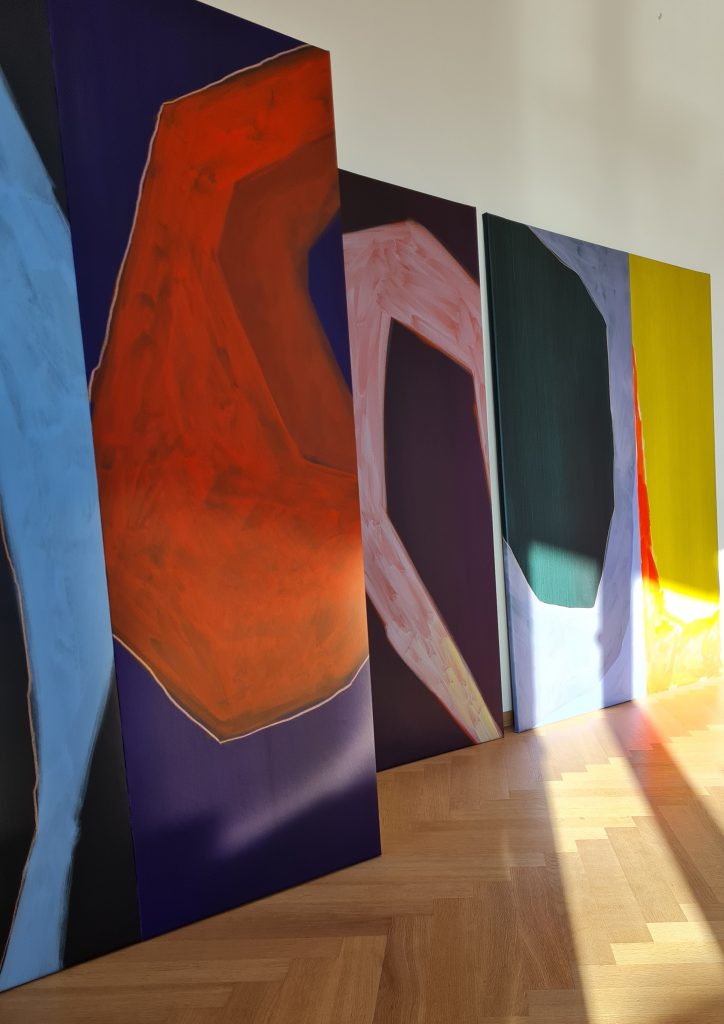
This duality in her early life played a significant role in shaping her perspective, both as a person and as an artist.
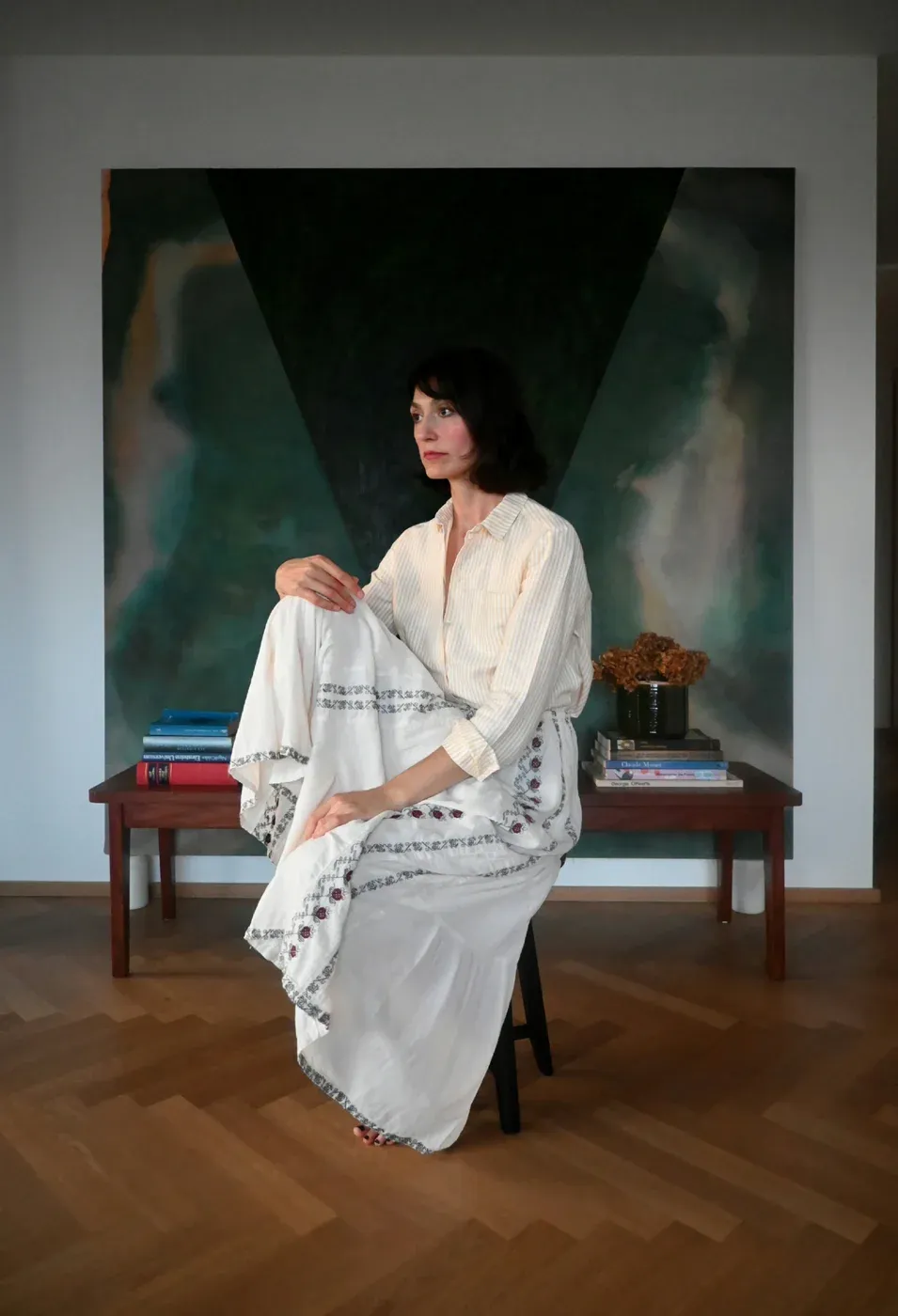
From a young age, Rasi was immersed in creativity. Her parents introduced her to painting, sewing, and working with fabrics.
The process of creating, whether it was a landscape on canvas or a garment from cloth, became a core part of her life.
Influenced by her father and inspired by the works of Monet, her early artistic efforts were deeply rooted in traditional forms—landscapes and portraits that sought to capture the beauty she saw in the world around her.
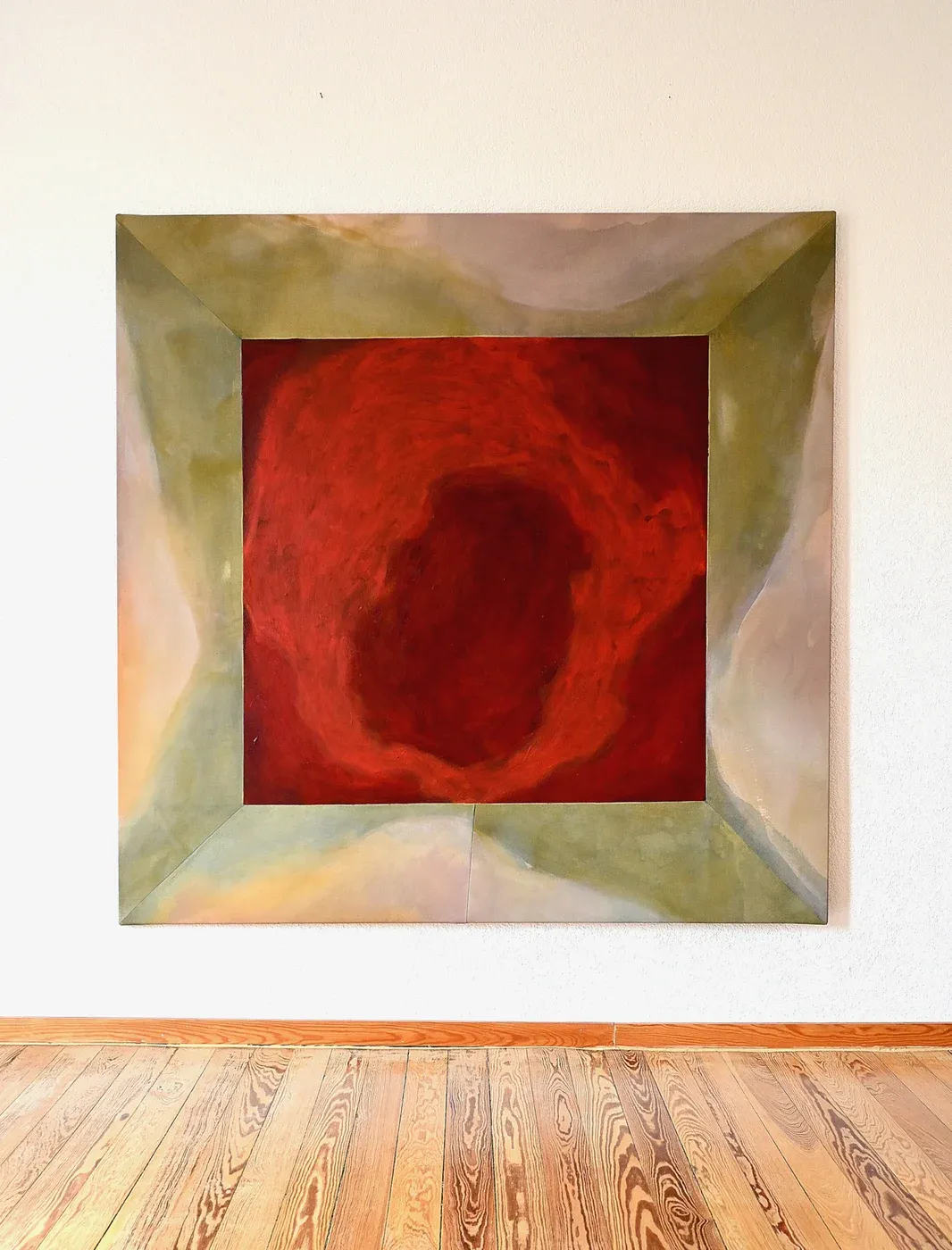
However, as Rasi grew older, her interests expanded beyond the canvas. She developed a fascination with understanding human behavior—what drives us, how we interact with one another, and how these interactions shape who we are.
This curiosity led her to study sociology, a field that allowed her to explore the complexities of human relationships and society.
The insights she gained during her studies profoundly influenced her art, pushing her away from the conventional subjects of her early work and toward more abstract explorations of identity and human interaction.
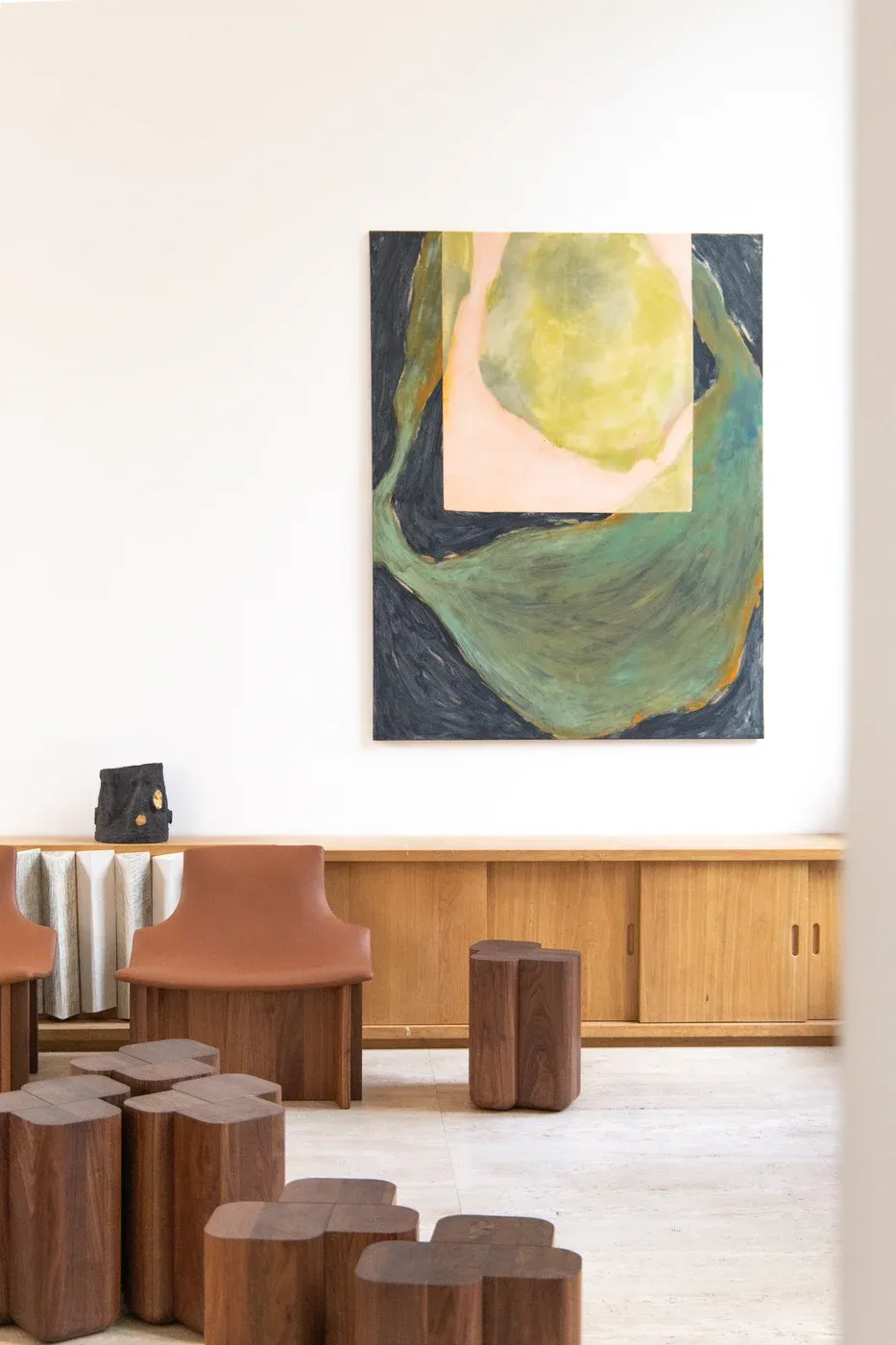
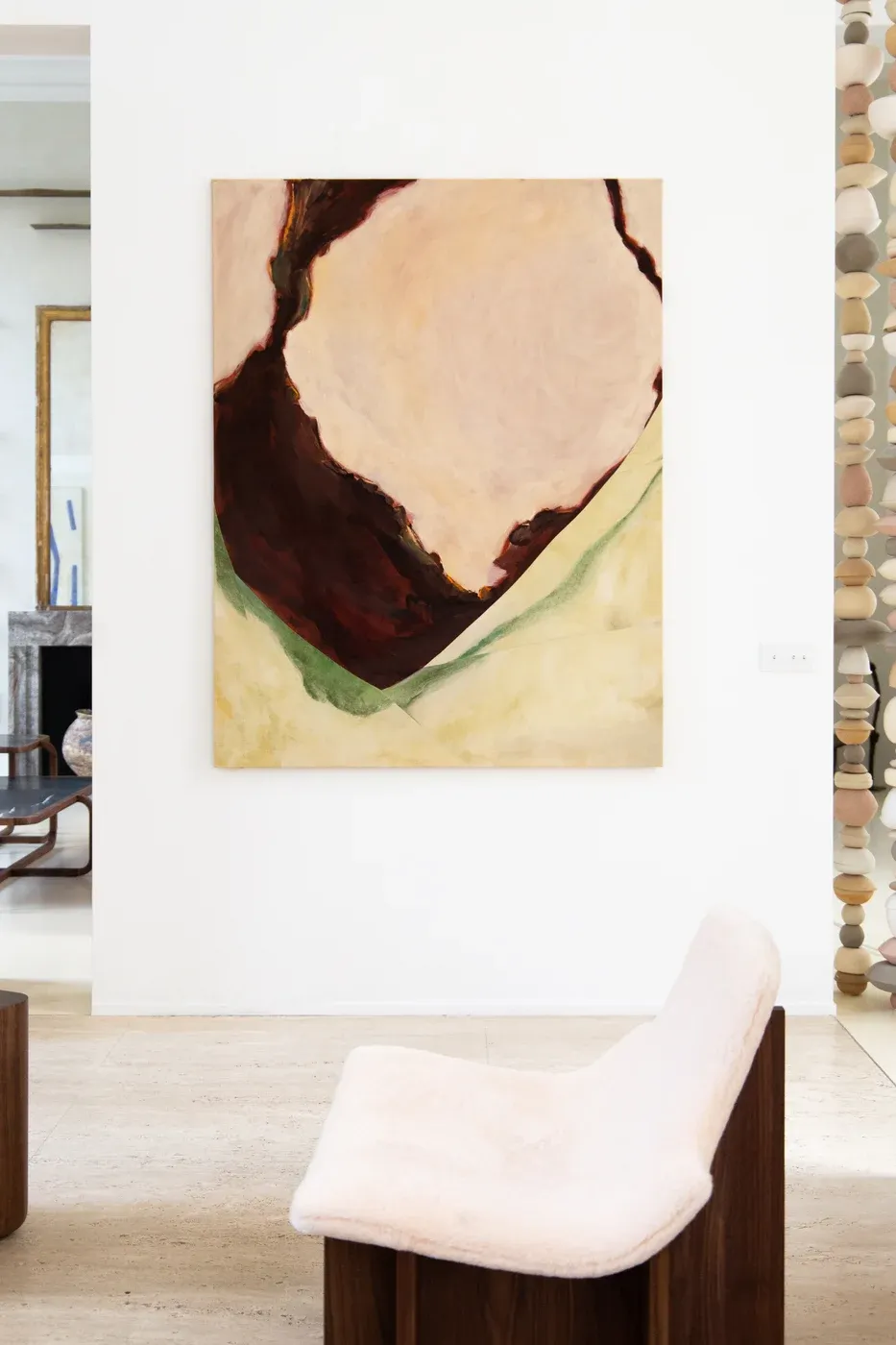
Amela Rasi: (left) Insitus-fevrier (right) insitus-fevrier24- | Image Courtesy of the Artist
Today, Rasi’s work is a reflection of this journey. Her art has evolved from the detailed landscapes and portraits of her youth to abstract representations that delve into the fluidity of identity.
Her paintings are characterized by a continuous flow of lines, symbolizing the ever-changing nature of self and the intricate web of relationships that define us.

Rasi’s work is deeply personal yet universally resonant, exploring the idea that our identities are not fixed but are constantly being shaped and reshaped by our experiences and the people we encounter.
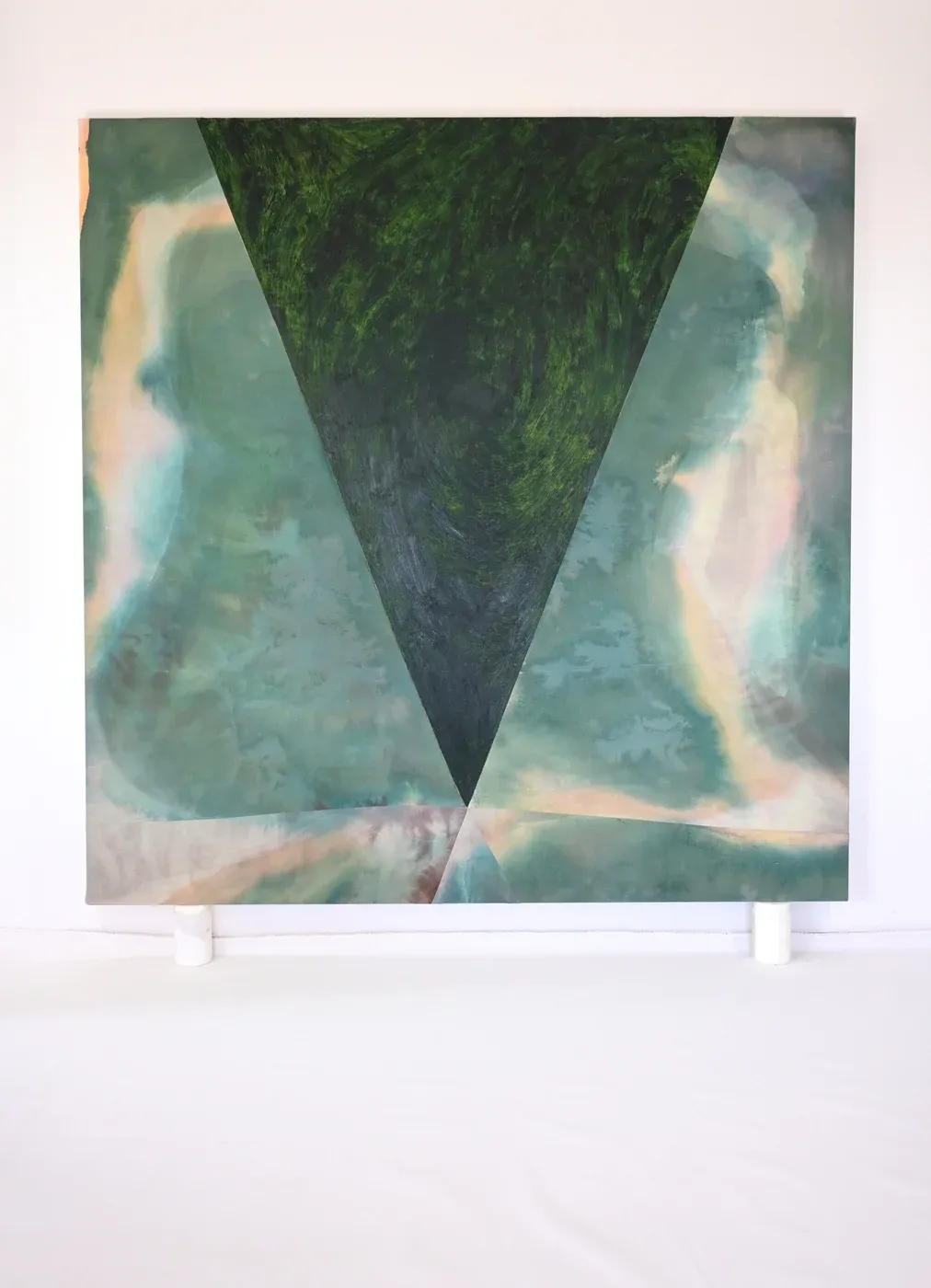
Thematically, Rasi is preoccupied with questions of identity, both individual and collective. She is particularly interested in how identities are formed, how they evolve, and how they are influenced by the broader social context.
Her work often features a blend of her own experiences with the stories of others, creating a tapestry of shared human experience.
The notion of identity as a fluid, ever-evolving concept is central to her practice. This is evident in the way she uses flowing lines and abstract forms to represent the continuous process of becoming—of finding and redefining oneself.
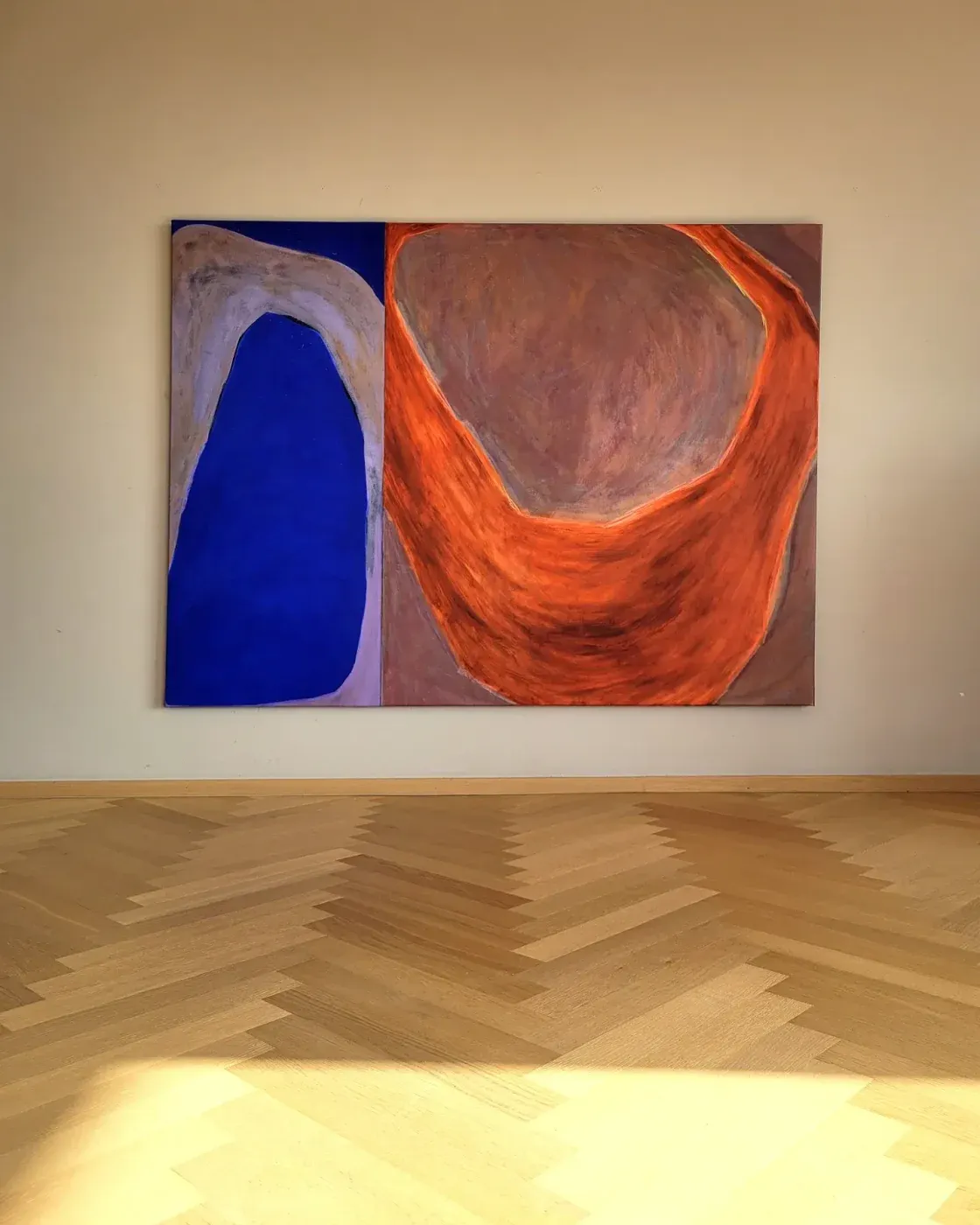
In philosophical terms, Rasi’s work can be seen as a meditation on the nature of identity. She challenges the idea of a static self, proposing instead that who we are is in constant flux, shaped by our interactions and the world around us.
This perspective is reflected in her choice of abstract forms, which resist the neat categorizations often imposed by traditional portraiture.
Her art suggests that to understand identity, we must embrace its complexity and fluidity, recognizing that it is shaped by a multitude of forces, both internal and external.
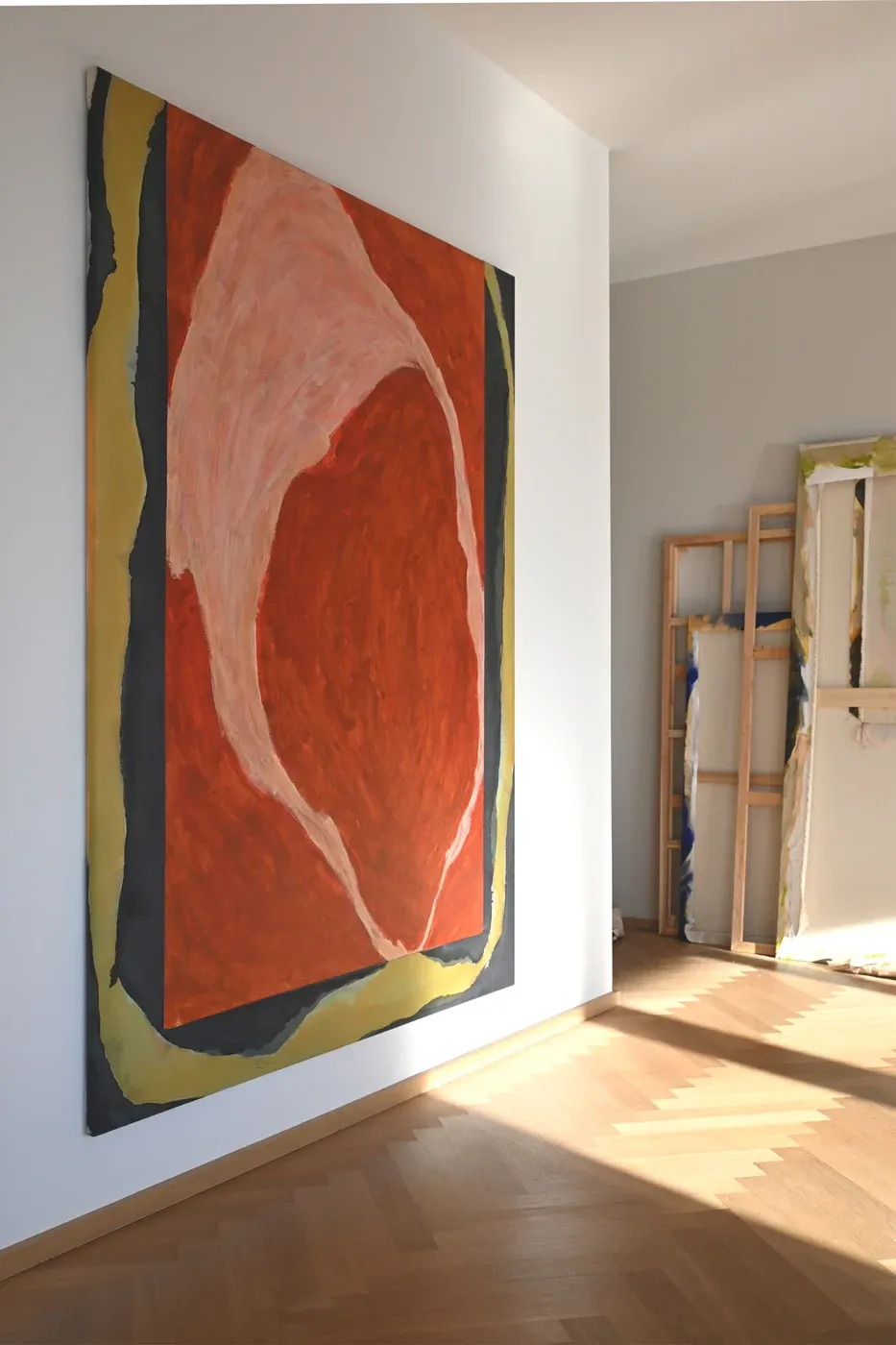
Rasi’s art practice is as much about process as it is about the final product. She often begins with a loose concept, allowing the work to evolve organically as she interacts with the materials.
This approach reflects her belief that art, like identity, is a process of continuous exploration and discovery.
The act of painting becomes a way of thinking, of working through ideas and emotions in a non-verbal way. Her use of materials is also significant—whether it’s the texture of the paint or the flow of the lines, everything in her work is chosen to evoke a sense of movement and change.
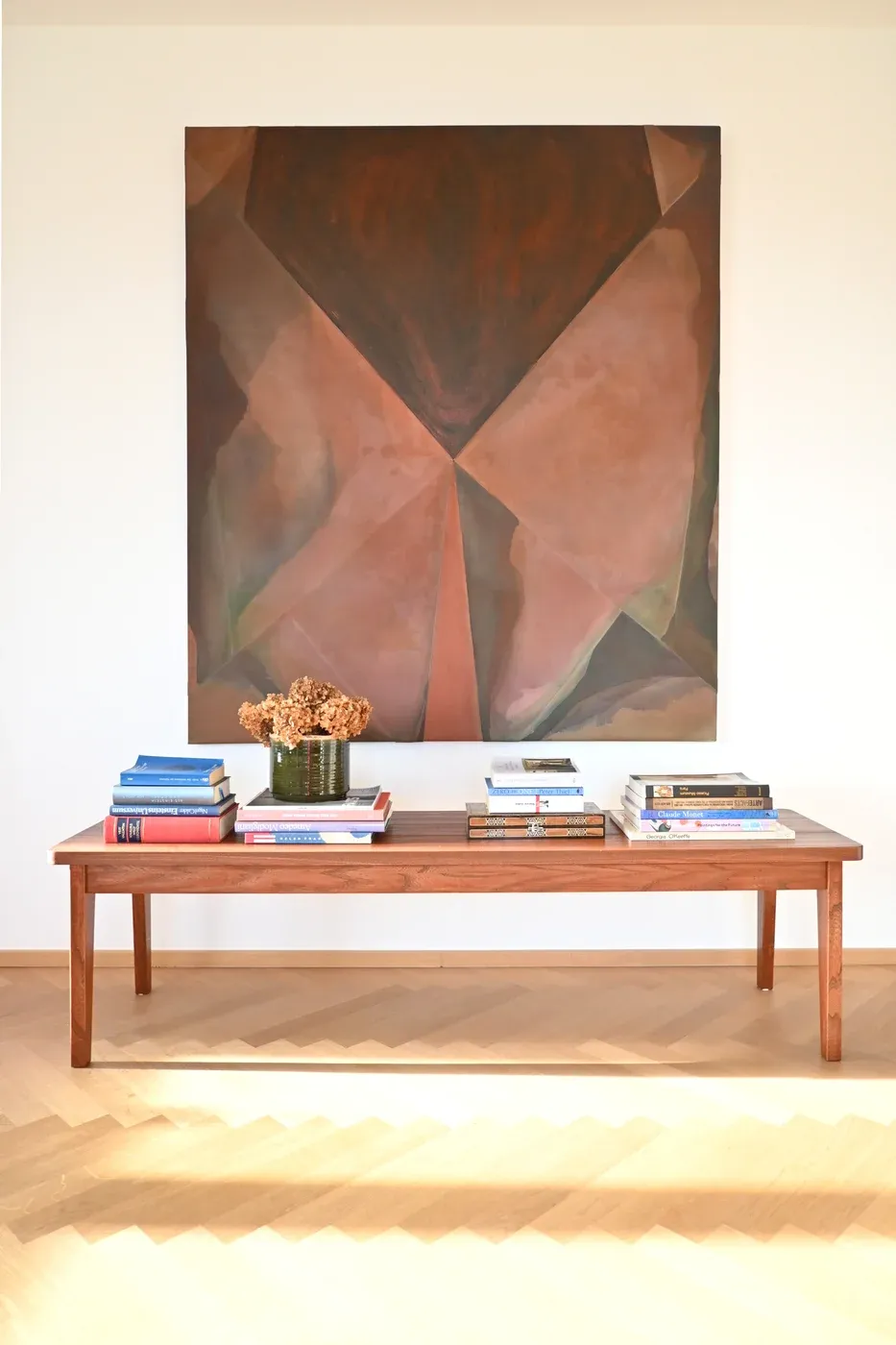
Currently based in Munich, Rasi collaborates with various galleries across Europe. She is a regular collaborator with Amélie Maison d’Art in Paris, a gallery that has been instrumental in bringing her work to a wider audience.

Her upcoming collaboration with Escat Gallery in Barcelona and her participation in a group exhibition at Christoffer Eglund Gallery in Copenhagen are just the latest in a series of exhibitions that have showcased her unique approach to art.
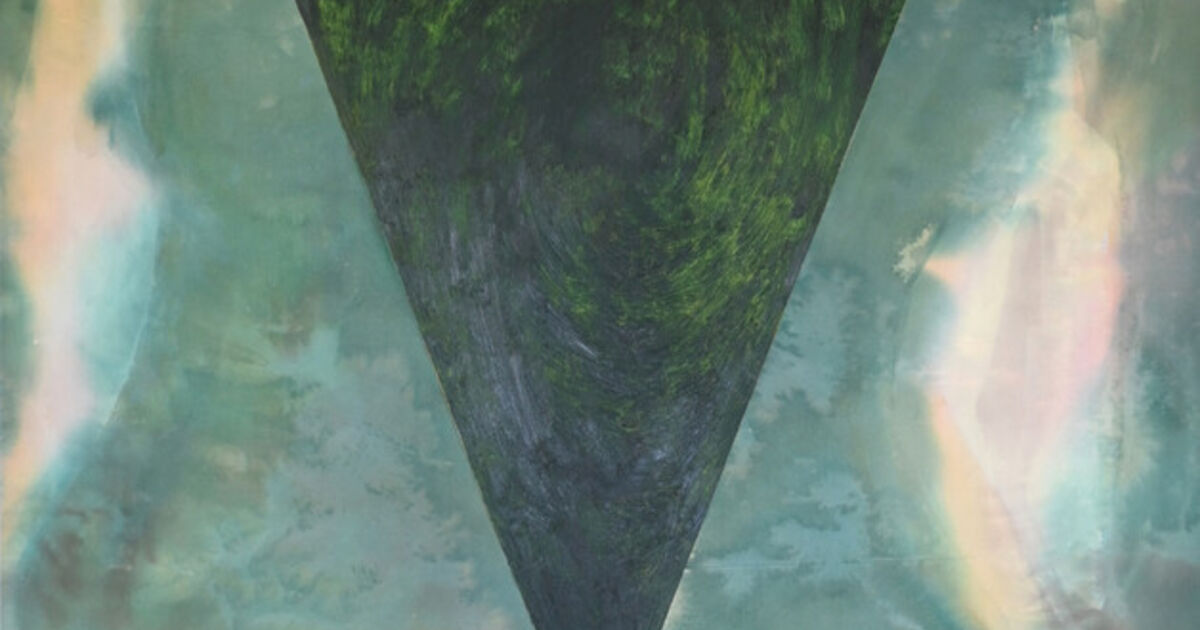
These exhibitions are more than just opportunities to display her work; they are platforms for Rasi to engage with new audiences and to continue her exploration of identity in different cultural contexts.
Each exhibition is a chance to see how her work resonates with others, to see what new insights she can gain from these interactions, and to further refine her ideas about identity and human interaction.
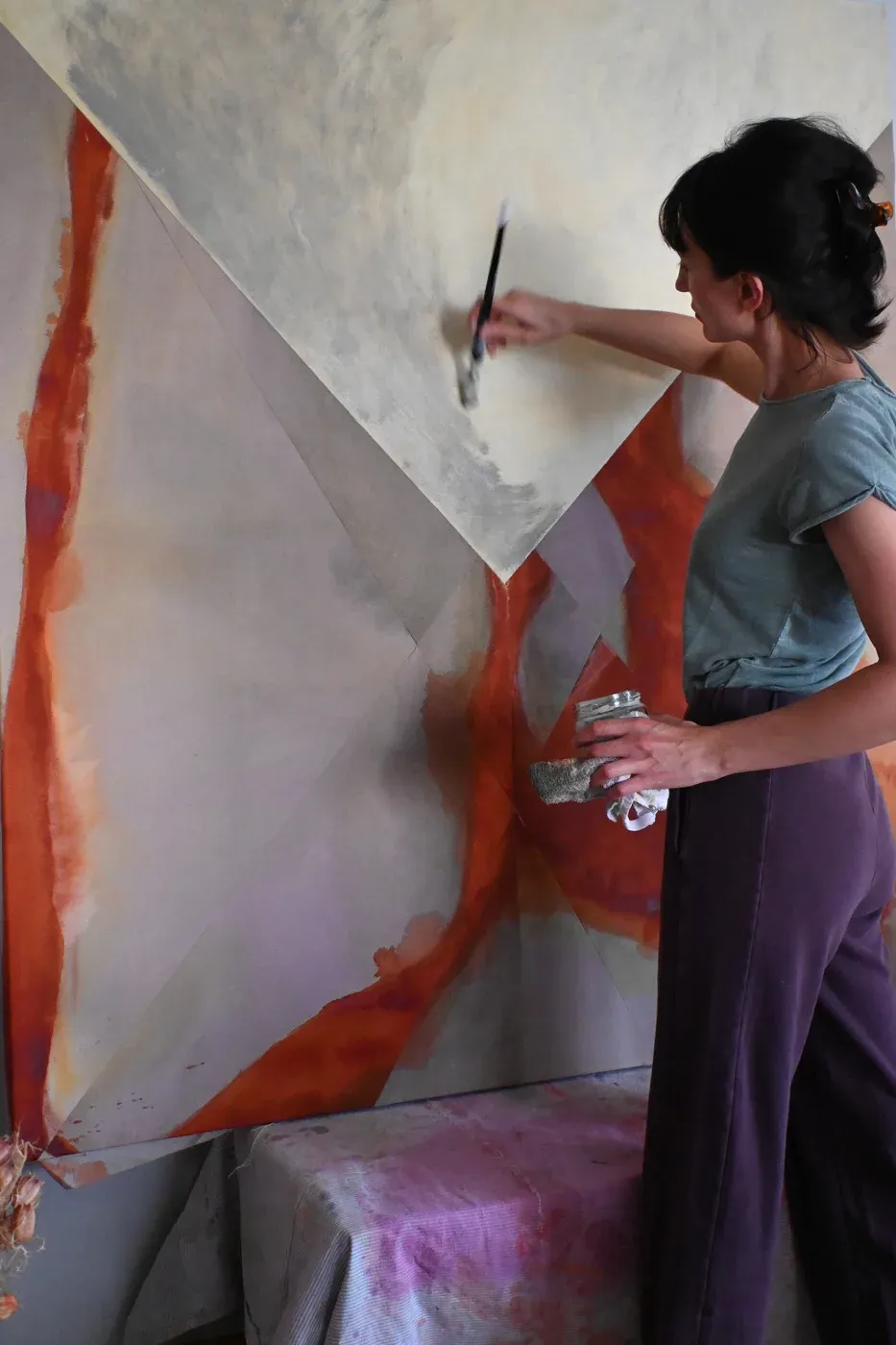
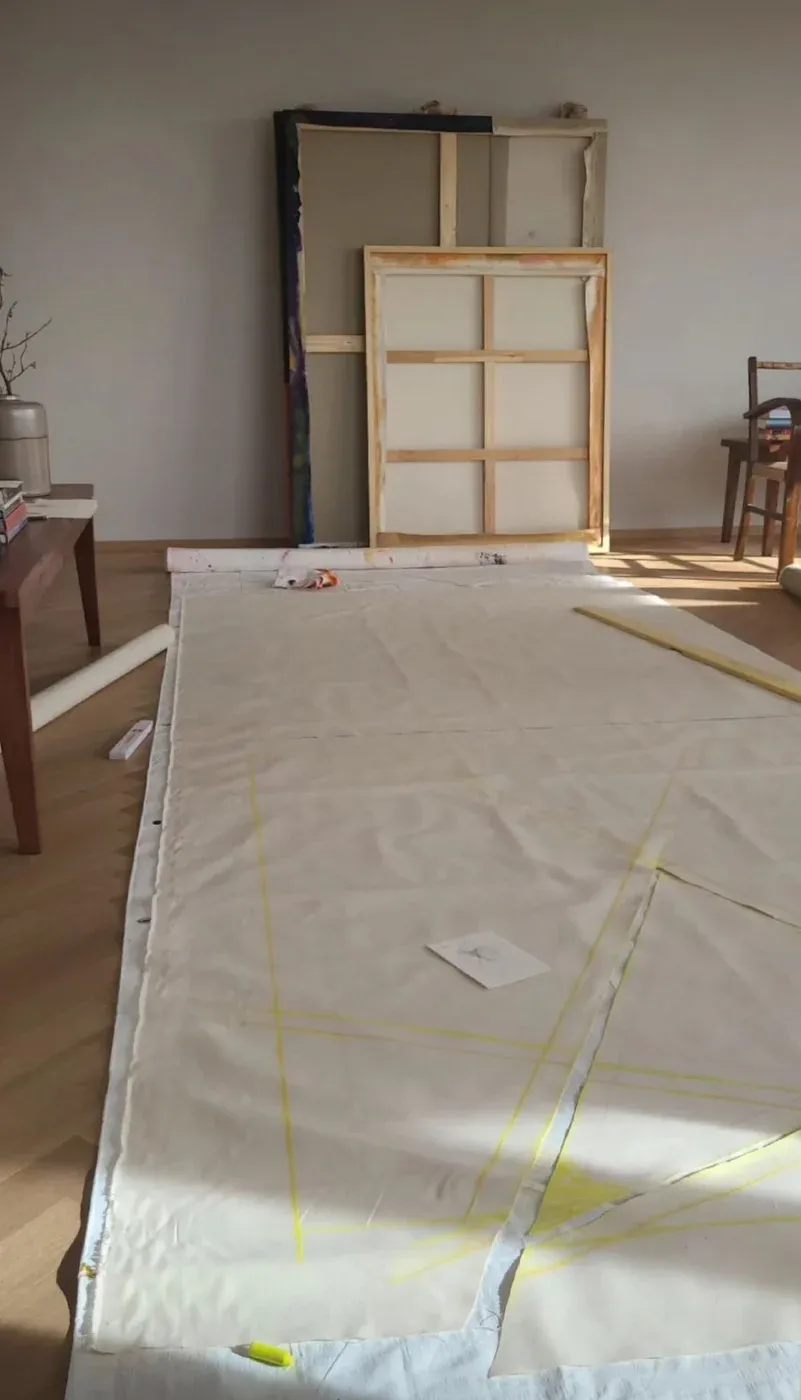
Amela Rasi: Studio view with works in progress | Image Courtesy of the Artist
In essence, Amela Rasi’s art is a dialogue—between the artist and the viewer, between the individual and society, and between the past and the present.
Her work invites us to consider the ways in which we define ourselves and to reflect on the ever-changing nature of identity.

Amela Rasi on Instagram
It’s a conversation that is both deeply personal and universally relevant, reminding us that we are all, in some way, works in progress.
Visit Amela Rasi´s Website or follow the Artist on Instagram.

Amela Rasi Website





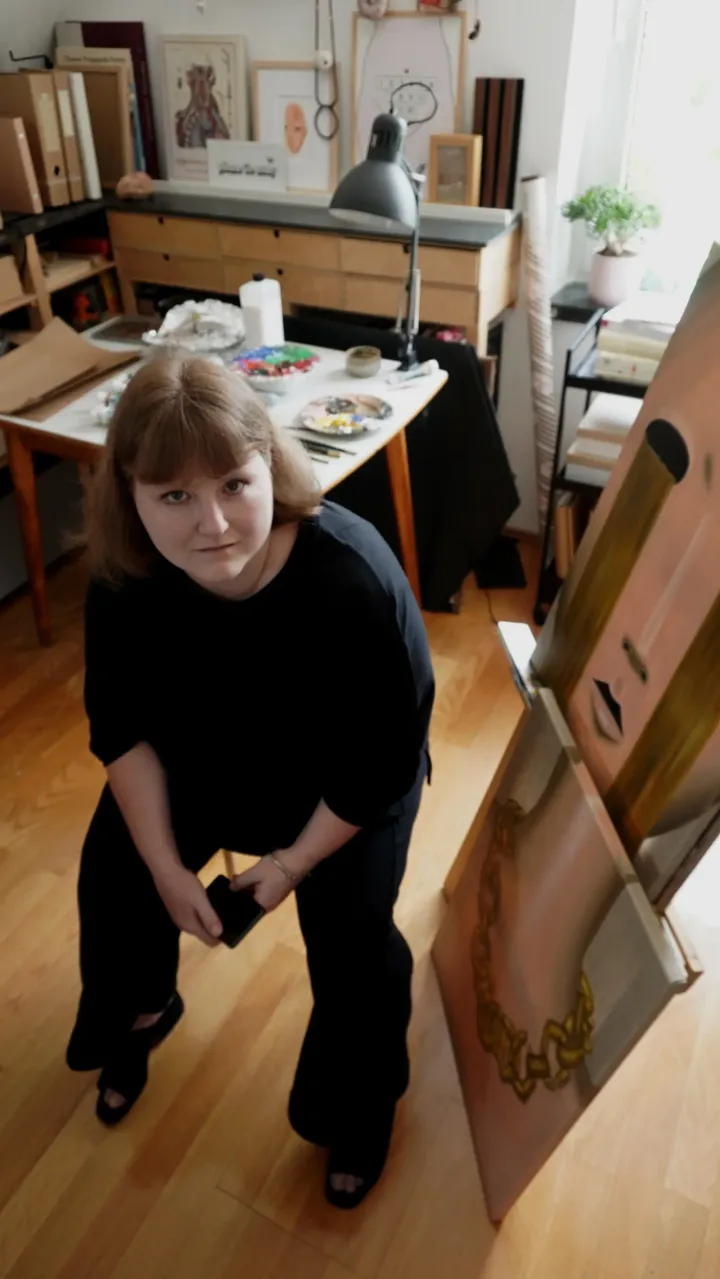
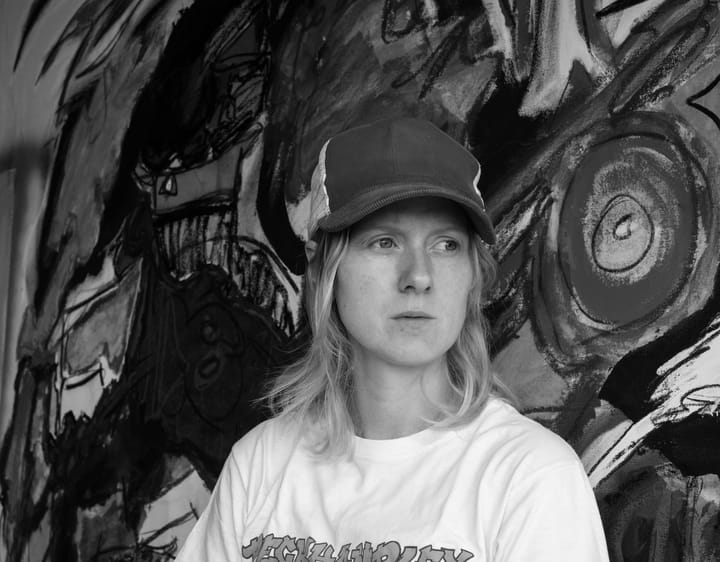
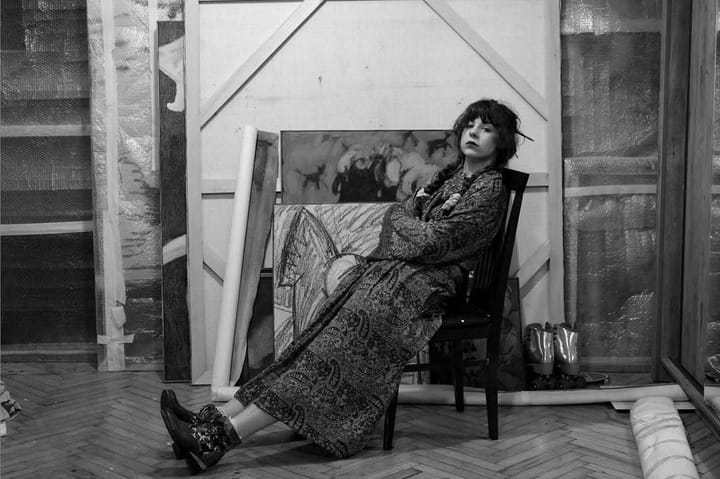
Comments ()